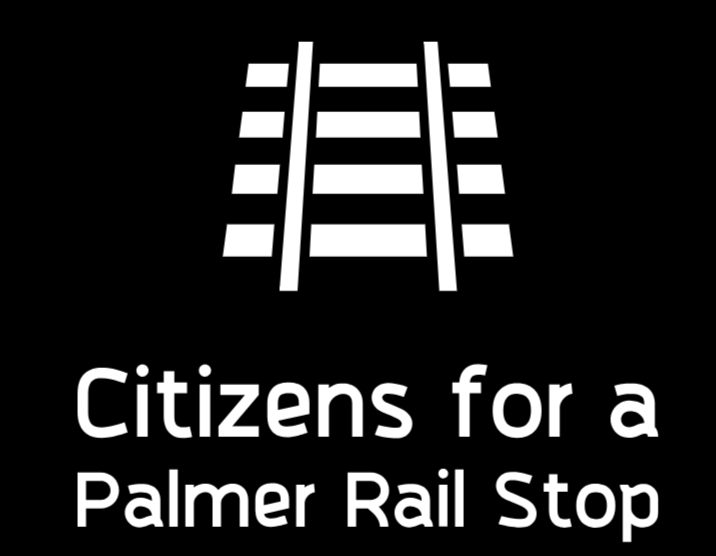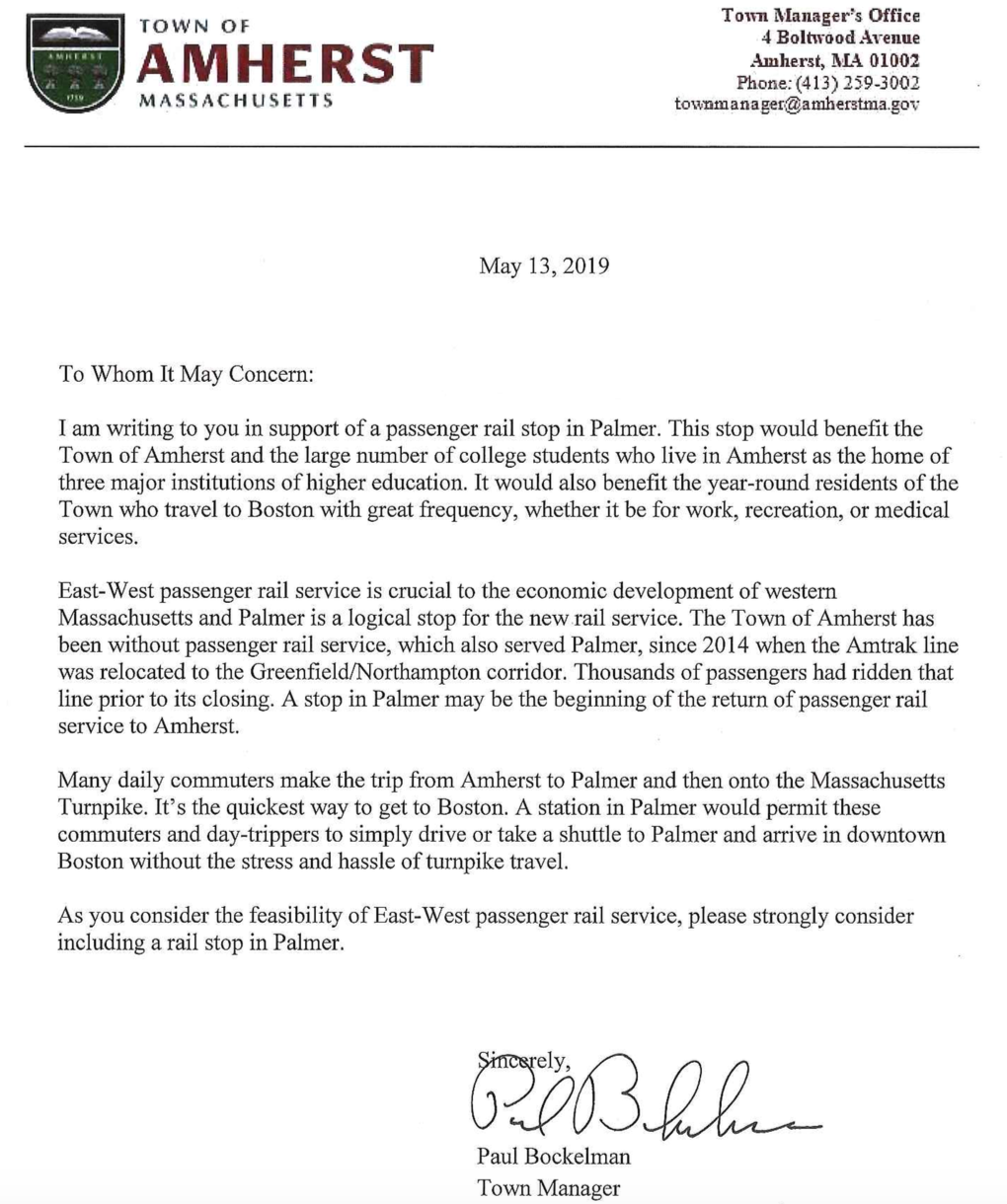Regional Appeal
When Massachusetts implements frequent, higher speed east-west passenger rail between Boston, Springfield, and Pittsfield, all the trains should stop at regional stations in Palmer and Chester in order to best serve residents of the Lower Quabbin Region between Worcester and Springfield, and the Hill Towns between Springfield and Pittsfield.
The Northern New England Intercity Rail Initiative (NNEIRI, 2016) concluded that initial ridership at Palmer would merit service by all 8 proposed round-trip trains running between Boston and New Haven, and also by the proposed single round-trip train running between Boston and Montreal.
A recent study by the UMass Center for Economic Development (CED) shows why the NNEIRI plan was right to make Palmer a major stop on proposed Inland Route passenger rail service. The CED’s study, Towards a Passenger Station on the Massachusetts East-West Train Line: The Case for Palmer, lays out the benefits that would accrue to Palmer, the 21-town Lower Quabbin Region, and the Commonwealth of Massachusetts.
First of all, a rail stop in Palmer would connect a region currently underserved by any form of transportation to the urban areas east and west. The CED study gives the demographics of the towns that would be served by trains stopping in Palmer:

[To view Figure 2 and continue reading this section of the CED study, please access the full study via this link: https://bit.ly/2KMvBDX]
Creating a regional station at Palmer would begin to address the transportation inequity that leaves tens of thousands of citizens in our area without adequate means to get to work, to pursue job training opportunities, or to attend college. Train service at a regional hub would enable local mass transit, including PVTA bus service and the Quaboag Connector, to provide residents of Lower Quabbin Region towns much-improved or, in many cases, brand-new access to Springfield, Worcester, and Boston.
A Palmer station would also serve as a junction between east-west trains and north-south bus (and eventually train) service to and from Amherst, connecting tens of thousands of students at UMass Amherst to Boston.
For a prime example of the regional appeal of east-west passenger rail with a stop in Palmer, see the letter from Paul Bockelman, Amherst Town Manager, at the top of this post. Officials in other local towns, including Ware, Monson, Brookfield, Hardwick, Barre, Hubbardston, New Braintree, and Oakham, have expressed their support for a Palmer station.
The CED study examines the statewide benefits of connecting eastern and central/western Massachusetts with frequent train service. The eastern part of the state has a robust economy and a shortage of housing; towns and cities throughout central/western Massachusetts have a wealth of affordably-priced homes.

Train travel between Greater Boston’s hot economy and western Massachusetts’ affordable homes would have the added benefit of raising standards of living across the state by sharing the wealth between east and west, reducing the stress of commuting to work by car on some of the nation’s most congested highways, and providing people across the Commonwealth with less car-dependent means to travel and enjoy the far-flung corners of our great state!
There is more statistical information about our Quaboag region in the CED study – please take the time to read it on the Town of Palmer’s website: https://bit.ly/2KMvBDX



